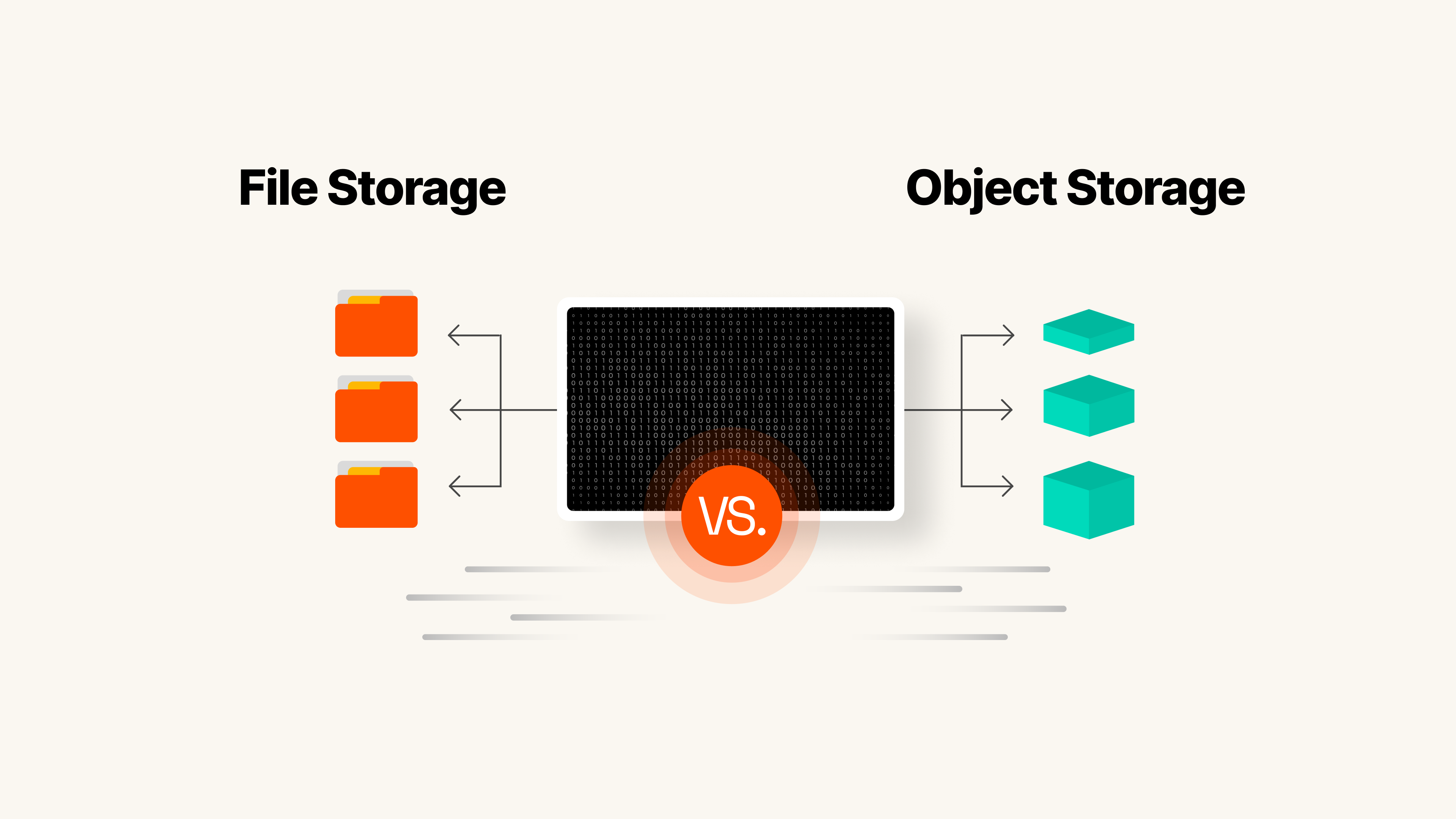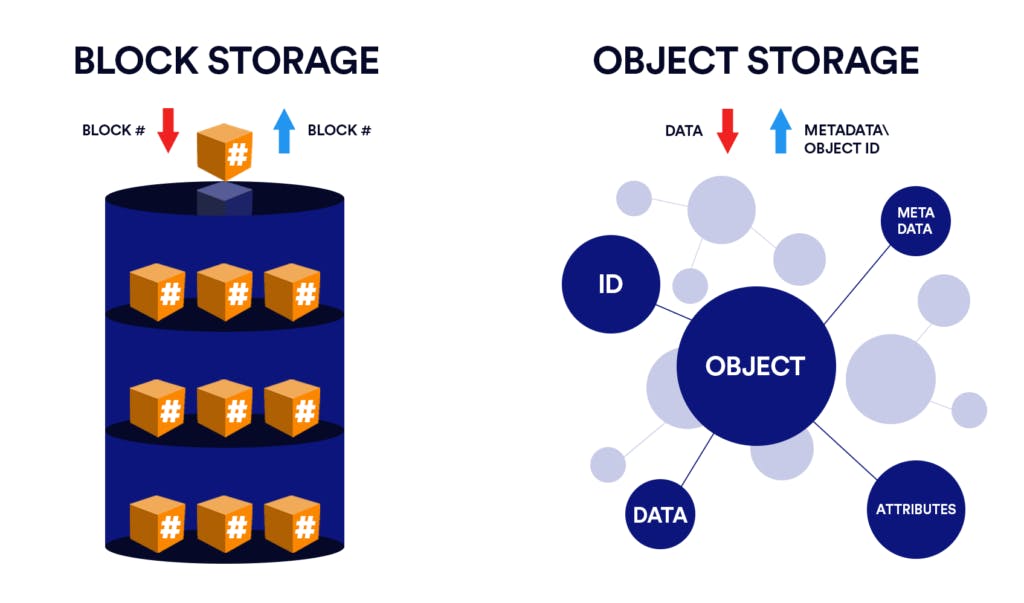Antwort Is object storage better than file storage? Weitere Antworten – Why is object storage better than file storage

Object storage makes it easy to store and manage large volumes of unstructured data, making it well suited for big data use cases, such as artificial intelligence, machine learning, and predictive analytics.What are the benefits of object storage
- Massive scalability. You can easily scale out the flat architecture of object storage without suffering from the same limitations as file or block storage.
- Reduced complexity.
- Searchability.
- Resiliency.
- Cost efficiency.
Object storage is best used for large amounts of unstructured data. This is especially true when durability, unlimited storage, scalability, and complex metadata management are relevant factors for overall performance.

What are the cons of object storage : The uniqueness of the object storage architecture has its downsides, too. For example, you can do whatever you want with the metadata but not with the objects as they are. Once it is created, there is no room for adjustments. The only way to get around that is to replicate or overwrite the object through API commands.
Is S3 better than NFS
On the other hand, S3 can be much easier to manage – it is more abstracted than NFS and typically allows easier expansion if that is something you will be doing often.
Why is object storage so popular : The main advantage of object storage is that you can group devices into large storage pools, and distribute those pools across multiple locations. This not only allows unlimited scale, but also improves resilience and high availability of the data.
Due to the categorization structure of object storage, and the lack of folder hierarchy, you can retrieve your data much faster. Reduction in cost. Due to the scale-out nature of object storage, it's less costly to store all your data.

It might seem dated, but the NFS protocol is still widely used — although it has undergone some changes.
When should you use object storage
For large amounts of unstructured data, especially if that data does not need to be read regularly, object storage may work best. Common use cases for object storage include: Application assets.Solid-state drives are much faster than hard disk drives, and the speed difference between the two types is significant. When moving big files, HDDs can copy 30 to 150 MB per second (MB/s), while standard SATA SSDs perform the same action at speeds of 500 MB/s.Solid-state drives (SSDs) are the most common storage drives today. SSDs are smaller and faster than hard disk drives (HDDs).
NFS does not support checksum capabilities, thus endangering the integrity of stored data. TCP does contain integrated checksum functions, but the protocol is only strong enough for up to 64K of total data. Back in the days of 10-megabit networks, 64K was fine.
Is NFS unreliable : More than any other distributed file system protocol, the NFS protocol is known for its reliability and data safety. The NFS version 2 protocol was notorious for slow write speed. The NFS guarantee of data safety required the server to store the data from each write request to disk before replying to the client.
Which type of storage is better : SSDs are smaller and faster than hard disk drives (HDDs). SSDs are noiseless and allow PCs to be thinner and more lightweight. Hard disk drives (HDDs) are more common in older devices. If you primarily use your PC for web browsing and light work, you may not need as much storage space.
What are the pros and cons of NFS
The main benefits of using NFS are centralized data storage, increased efficiency, data security, and scalability. However, it's not a good choice for sharing sensitive data over public networks and doesn't support hierarchical storage management.

Disadvantages of NFS
Otherwise, NFS will be vulnerable to internet threats. Some reviews of NFSv4 and NFSv4. 1 suggest that these versions have limited bandwidth and scalability and that NFS slows down during heavy network traffic. The bandwidth and scalability issue is reported to have improved with NFSv4.The NFS device inherently sits directly in the data path, and can't scale performance to accommodate the demands of I/O intensive computing or multiple concurrent requests. Any gateway is a bottleneck too, and NFS gateways are no exception.
What is the secure alternative to NFS : In many situations, SFS provides a suitable and more secure alternative to the widely deployed NFS file system. Nonetheless, SFS gracefully coexists with NFS and other file systems such as Samba.



